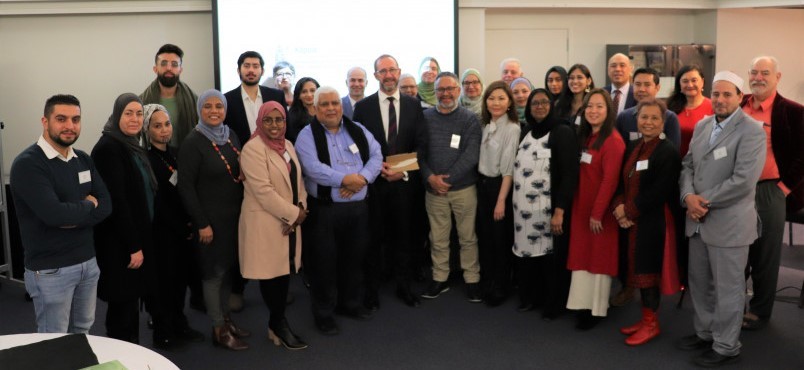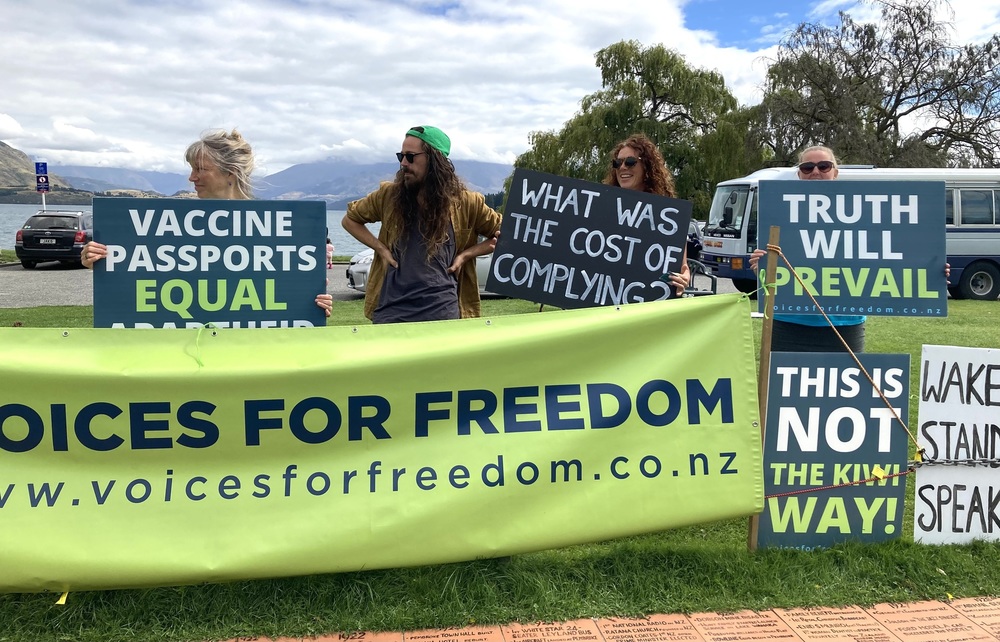‘Eye opening’ role addressing social cohesion
Sue Wards
23 March 2022, 5:06 PM
 Kathy Dedo PHOTO: Supplied
Kathy Dedo PHOTO: SuppliedIn the midst of an Omicron surge, and in the aftermath of a 23-day protest occupation at New Zealand’s parliament, one Wānaka resident is playing a role in improving social cohesion in New Zealand.
Kathy Dedo, LINK Upper Clutha manager, is a member of Kāpuia, the Ministerial Advisory Group on the government’s response to the Royal Commission of Inquiry into the terrorist attack on Christchurch mosques.
Last week was the third anniversary of the mosque attacks (March 15), and the Wānaka App sat down with Kathy to talk about her role on Kāpuia, and the wider implications of this work on social cohesion.
Response to the mosque attacks
The Royal Commission of Inquiry into the 2019 mosque attacks issued a report recommending 44 things the government could do to avoid such events happening again.
One of those recommendations was to form a ministerial advisory group to advise the government on implementing the recommendations.
“Our role is to provide independent advice with a goal of increasing social cohesion and safety for all New Zealanders,” Kathy said.
“It’s a very robust set of recommendations, and gives government a mandate to make changes.”
The group’s role is broad, battling “those big systemic things” like racism, colonialism, extremism, terrorism, inequity and inequality. Specific issues on the table include national security, gun laws, reporting mechanisms for hate crimes, and more.
Kāpuia gives feedback to a range of government departments with those responsibilities, thereby “amplifying voices of people who often are not heard”, Kathy said.
The membership is “multicultural and representative of our increasingly diverse Aotearoa”, Kathy said, including refugees, and “people who know what it feels like to not be safe elsewhere and in this country”. Kathy is the Southernmost representative and can contribute a semi-rural point of view.

Kāpuia, with Justice Minister Andrew Little. PHOTO: Supplied
Kāpuia was formed in June 2021 and Kathy was appointed in October after a rigorous application process.
“It’s transformative and eye-opening. I feel privileged to be in the group,” she said. “It has been humbling and I do a lot of listening.”
Kathy’s role on Kāpuia gives her a valuable perspective on the wider issue of social cohesion.
Not a new challenge, social cohesion has also been fractured by the government’s implementation of vaccine mandates in response to the Covid-19 pandemic.
Division from Covid-19 restrictions
Kāpuia comes from the whakataukī (proverb) “Ki te Kotahi te kākaho ka whati, ki te kāpuia e kore e whati”: If there is only one reed, it breaks easily, but gather many together they will not break.
In Kāpuia, the reeds reflect the different cultures in New Zealand; when we come together we are strong and cannot be broken. “By standing together in New Zealand, we will enhance social cohesion and create a safer country for everyone - by being together we cannot help but have each other’s backs,” is the Department of Prime Minister and Cabinet’s interpretation of Kāpuia.
The aim of Covid-19 mandates was to increase vaccination rates, both to protect vulnerable demographics and ensure the country’s health services would be able to cope during an outbreak.
But the impact, including in Wānaka, has been polarising. A small but vocal number of local people have protested regularly against the mandates. Some joined the protest in Wellington in February, and others protested daily on Ardmore Street in solidarity.

Local people protest Covid-19 restrictions on Ardmore Street. PHOTO: Wānaka App
In a district with more than 95 percent of the eligible population double vaccinated, the protestors “don’t represent a deep division but rather a small, vocal minority,” Kathy said.
However, the presence of a small, disaffected group is significant for social cohesion locally.
Social cohesion is about all individuals and groups having a sense of belonging, inclusion and participation, recognition and legitimacy, Kathy said. “It’s not about making everyone the same.”
That sense of inclusion was damaged for those people who chose not to be vaccinated. For some, the consequences were significant.
Where to from here?
“In Kāpuia, one of the things we’ve come to is the need to look forward,” Kathy said.
“We can get trapped in relitigating the past. We move forward as a society not by ignoring the past but by understanding it, learning from it, and then asking, how do we move forward together?”
Kathy says trying to understand what people are going through is a good starting place.
Having empathy goes back to believing in the collective and the common good, she says.
“We all call this place home, we all should feel at home in this place.”
The Upper Clutha community has expressed quite a lot of support for one another over the years, Kathy said, citing a 2017 LINK survey which identified “the sense of community and a supportive community” in the Upper Clutha’s top five values.
“I don’t think, fundamentally, that has changed,” she said. “In our community there are people quietly getting on with supporting one another every day.”
Shared values
There are some disturbing trends, such as people “shouting before they talk”, and using keyboards to express their concerns, Kathy said.
There are also some tangible things which need work, such as reaching a shared notion of the objective idea of fact, Kathy says.
Civics, history education and media literacy are part of the solution, she said, and Kāpuia is working with the Ministry of Education on diversity and inclusion projects, such as the new history curriculum.
And in situations where there is disagreement about facts and trusted sources of information, the challenge is: “How to extend open mindedness and grace to people with a different point of view, when we can’t agree on fact,” Kathy said.
It comes down to identifying shared values, she added.
“We might disagree about nine out of 10 things, but what do we agree on, and is that the basis for re-forming a relationship?”
Getting to know each other sounds like a simple and perhaps naive solution, but Kathy said initiatives such as LINK’s ‘Neighbours Day’ which encourage us to get to know each other better are useful.
“The point of getting together is to share and talk. You’re going to find common ground.”
Kathy also feels hopeful when looking at the next generation.
“The young people today, they are adaptable, not as jaded. They are naturally open minded to start with. Our kids are more accepting.”
Find more about Kāpuia here.



